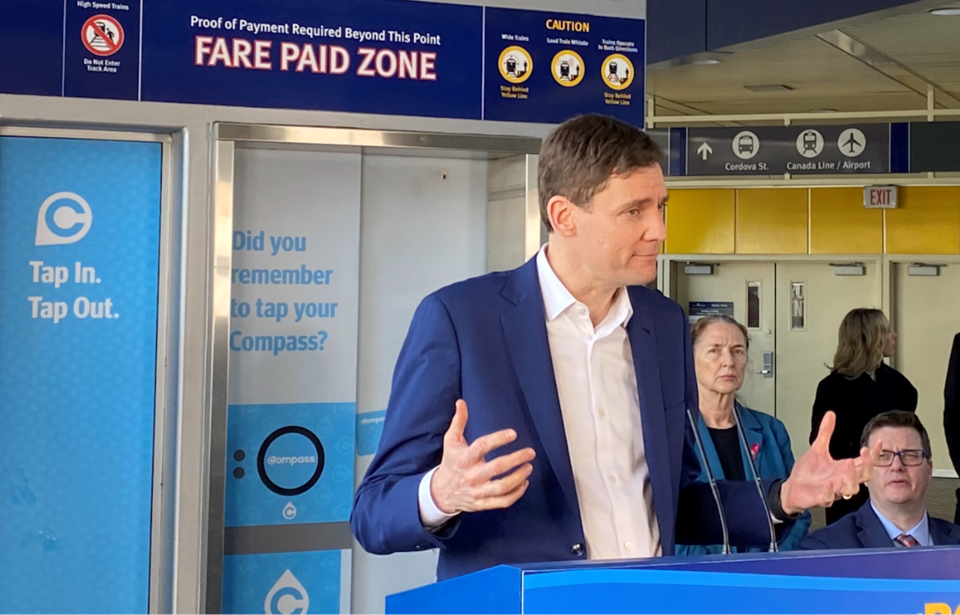VANCOUVER — British Columbia is injecting nearly $500 million into the Metro Vancouver transit system to save it from what officials say is a feared "death spiral" sparked in part by the COVID-19 pandemic.
Premier David Eby says the $479 million in provincial funding for TransLink will keep fares affordable, avoid service cuts and enable future transit expansion plans to continue.
TransLink CEO Kevin Quinn says losses in ridership revenue because of the pandemic and higher service costs due to inflation and supply chain issues have put unprecedented strains on the company's finances.
Brad West, mayor of Port Coquitlam and chair of the Mayors’ Council on Regional Transportation, says without the province's help, the system was facing service cuts and fare increases, the hallmarks of a "death spiral" facing transit in many other cities.
The council, which has representatives from 21 municipalities in the region, had asked the provincial and federal government to step in with a total of $500 million to avoid service cuts.
West says it's "incredibly unfortunate that the federal government didn't step up on this occasion" but that mayors will continue to push for federal support including a call to accelerate Ottawa's planned permanent transit funding.
Eby says ridership is coming back after the pandemic, but slower than expected.
"But what we definitely don't want to do right now is have TransLink cut back services, causing people not to come back to transit because the service simply isn't there for them, causing fewer people to choose transit, causing further cutbacks because of reduced revenue."
This report by The Canadian Press was first published March 15, 2023.
The Canadian Press



